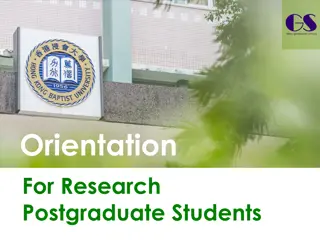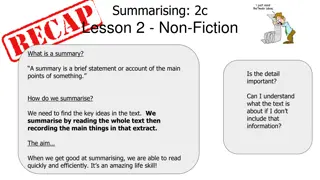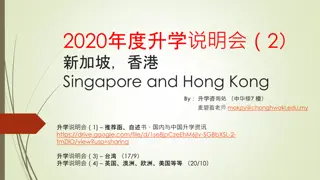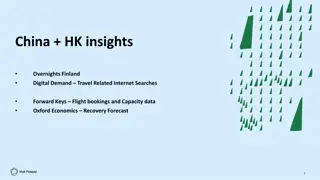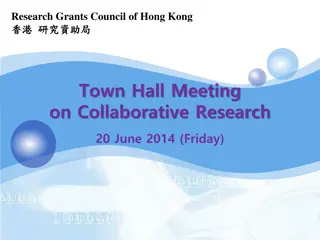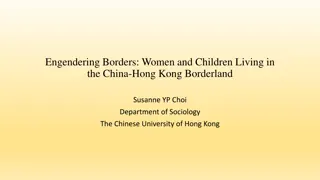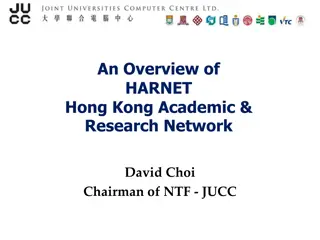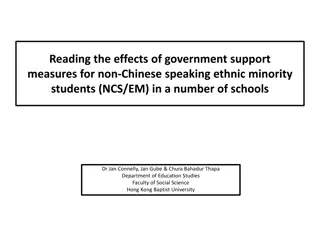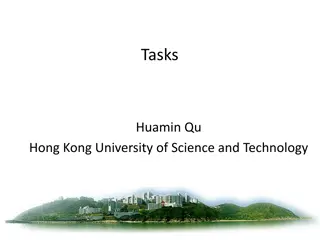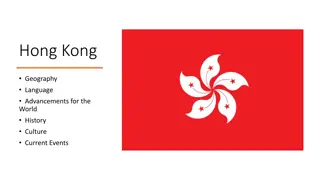Navigating Trust in the Smart City: Insights from Hong Kong Focus Groups
Prof. Alistair Cole and co-authors explore the relationship between trust and the Smart City concept through navigating four focus groups in Hong Kong. The article delves into defining the Smart City, understanding trust dynamics, and employing mixed-method approaches for comprehensive insights.
Download Presentation

Please find below an Image/Link to download the presentation.
The content on the website is provided AS IS for your information and personal use only. It may not be sold, licensed, or shared on other websites without obtaining consent from the author.If you encounter any issues during the download, it is possible that the publisher has removed the file from their server.
You are allowed to download the files provided on this website for personal or commercial use, subject to the condition that they are used lawfully. All files are the property of their respective owners.
The content on the website is provided AS IS for your information and personal use only. It may not be sold, licensed, or shared on other websites without obtaining consent from the author.
E N D
Presentation Transcript
Understanding trust in the smart city through navigating four focus groups in Hong Kong Prof. Alistair Cole Co-authors: Mr. Calvin Ming Tsun Lai & Dr. DionysiosStivas
Introduction The article is conceived as a methodological journey through a complex, transdisciplinary research field centred on the ambivalent concepts of trust and the Smart City. How do we define a Smart City? The term Smart City has been used in different contexts since the 1990s, when it was first employed in the United States to describe the use of ICT (information and communication technologies) applications in modern urban infrastructures (Gibson, 1992). Smart City lies somewhere between a material fact (use of technology in urban management) and an urban narrative (vision of the good life) (Albino et al. 2015; Sharifi 2019; Caragliu et al. 2011; Cole, Healy and Morel-Journel, 2022). Smart City remains an essentially contested concept, open to contrasting interpretations, epistemological underpinnings and methodologies.
Trust and the Smart City
Trust and the Smart City
Focus groups as mixed methods The article is conceived as a methodological journey through a complex, transdisciplinary research field centred on the ambivalent concepts of trust and the Smart City. As understood here, Smart city dynamics involved a mixed-method approach. Mobilising distinct ways of knowing can assist in methodological triangulation and enhanced understanding (Moses and Knutsen, 2011). Statistical relationships have produced interesting findings about explanatory variables determining support for the Smart City (Cole and Tran, 2023) or identifying the foundations of pride in Hong Kong s Smart City (Lai and Cole, 2024). More interpretative accounts have retraced Smart City as an urban narrative over decades in Hong Kong (Cole, et al, 2023). This article continues to explore how to understand and interpret the complex relationship between trust and the Smart City by introducing an interactive and deliberative dimension. The focus groups were one instrument in a broader project that involved quantitative (the HKPORI 2021 survey with a representative sample of the Hong Kong population) and qualitative (2020-21 face to face interviews with, and written responses from official agencies) modes of inquiry.
Three dimensions of focus groups The first proposition is that focus groups add value in terms of being an instrument for sectional or cross- sectional analysis. A second proposition is that the focus group encourages a deliberative dynamic. Focus group has been reintroduced as a research method aiming to understand the meanings, beliefs and cultures of social issues that influence the feelings, attitudes, perceptions and behaviours of individuals The third proposition is that the focus group provides a mixed method tool that can assist in validation. Due to their flexibility, focus groups are suitable for gathering different kinds of information that require different type of research designs.








